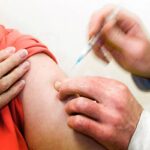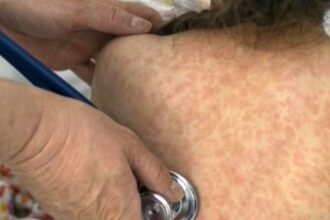In what health officials are calling a deeply concerning trend, measles vaccination rates across the Maritime provinces have fallen to their lowest levels in over a decade, creating vulnerable pockets where this highly contagious disease could rapidly spread. Recent data from provincial health authorities reveals that immunization rates in parts of New Brunswick, Nova Scotia, and Prince Edward Island have dropped below the critical 95% threshold needed for effective community protection.
“We’re witnessing a perfect storm of factors,” explains Dr. Martha Coleman, Chief Public Health Officer for Nova Scotia. “The combination of pandemic-related disruptions to routine healthcare, growing vaccine hesitancy, and the resurgence of anti-vaccination sentiment on social media has created dangerous gaps in our community immunity.”
The statistics paint a troubling picture. In rural New Brunswick, MMR (measles, mumps, rubella) vaccination rates among children entering kindergarten have fallen to just 87%, while certain communities in Cape Breton report rates as low as 83%. Health officials warn these numbers are insufficient to prevent potential outbreaks should measles be introduced into these communities.
This concerning trend has already shown real-world consequences. Three small but significant measles outbreaks have been documented across the Maritimes in the first half of 2025, affecting primarily unvaccinated children and immunocompromised individuals. The largest occurred in a Fredericton-area school, where 14 cases were confirmed before containment measures successfully halted transmission.
“Measles isn’t just a rash and fever – it can cause serious complications including pneumonia, encephalitis, and even death,” says Dr. James Terrance, pediatric infectious disease specialist at the IWK Health Centre in Halifax. “What’s particularly frustrating is that these are entirely preventable cases. The MMR vaccine is safe, effective, and has decades of evidence supporting its use.”
Provincial health departments across the Maritimes have launched coordinated awareness campaigns targeting communities with the lowest vaccination rates. Mobile vaccination clinics, extended hours at public health offices, and partnership programs with schools aim to make immunization more accessible. However, health officials acknowledge that addressing vaccine hesitancy requires more than just improved access.
The decline appears to be part of a broader national trend. According to Canada News reporting, similar patterns have emerged in several provinces, though the Maritimes currently show some of the most significant decreases.
“We’re not just fighting a virus; we’re fighting misinformation,” notes Dr. Coleman. “Many parents who delay or refuse vaccination for their children are genuinely concerned and trying to make the best decisions. Our job is to ensure they have accurate information and understand the very real risks of leaving children unprotected.”
The challenges are particularly acute in rural and remote Maritime communities, where access to healthcare can be limited and where social media may serve as a primary source of health information. Community health workers report encountering increasingly sophisticated anti-vaccination narratives that can be difficult for parents to evaluate critically.
Economists also point to the broader societal costs of declining vaccination rates. According to CO24 Business analysis, measles outbreaks create substantial economic burden through direct healthcare costs, lost productivity, and strain on public health resources.
Health authorities are urging parents to check their children’s immunization records and ensure they are up to date. The standard MMR vaccine schedule calls for a first dose at 12 months and a second dose between ages 4-6, though catch-up vaccination is available for those who have missed doses.
As Maritime provinces work to reverse this troubling trend, the question remains: can public health initiatives overcome the complex social and informational barriers driving vaccine hesitancy before more serious outbreaks occur?

























